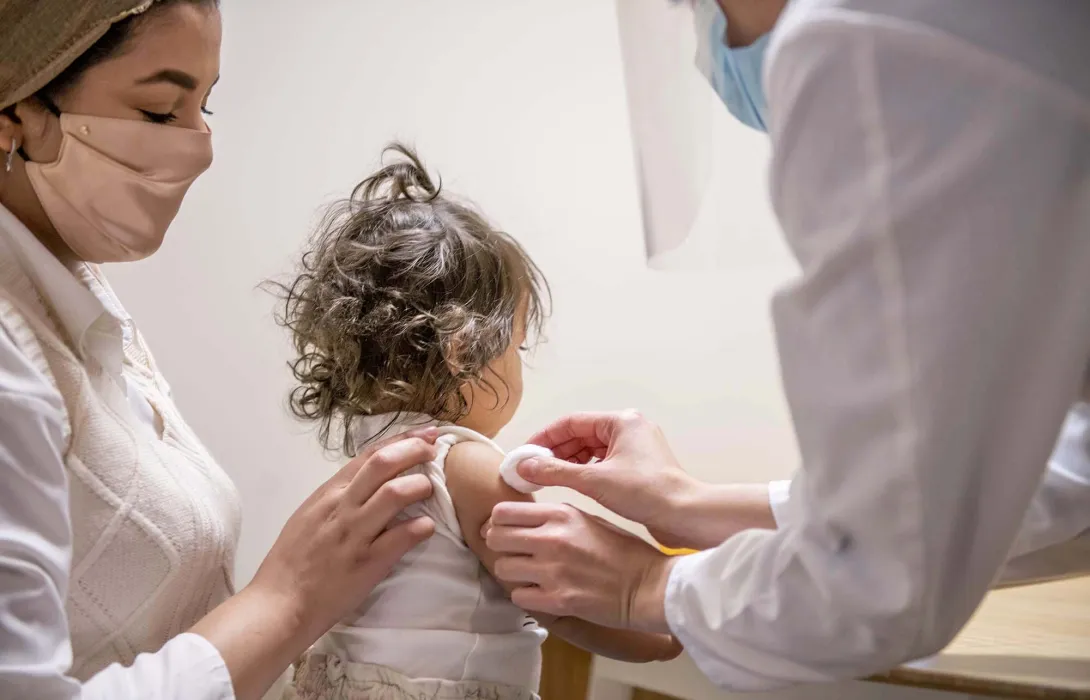
Photo: Fat Camera/Getty Images
The National Institutes of Health is launching an initiative to integrate patient medical record data for researchers to study the factors influencing autism, according to remarks given by NIH Director Dr. Jay Bhattacharya on April 21 in a Council of Councils meeting.
The data sources, according to NIH site information, will come from pharmacies, health organizations, clinical data, claims and billing, environmental, and sensors and wearables. The site indicates the protection of patient confidentiality within researcher access.
CBS News reported that the NIH will amass private medical records from federal and commercial databases to give to Health and Human Services Secretary Robert F. Kennedy Jr. for the study.
These medication records are from pharmacy chains, lab testing and genomics data from patients treated by the Department of Veterans Affairs and Indian Health Service, claims from private insurers and data from smartwatches and fitness trackers, according to the CBS report.
WHY THIS MATTERS
RFK Jr. has called autism an epidemic in which cases have risen from 1 in 10,000 years ago to a current 1 in 31. Scientists have debunked Kennedy's theory that vaccines cause Autism Spectrum Disorder and have linked up to 90% of cases to genetic traits, according to the NIH Library of Medicine.
The rise in cases is due to improved screening, scientists have said.
Kennedy has said the increase is more than what would result from additional screening and the cause is more than genes. Kennedy has said he believes "an environmental toxin" is causing autism, pointing to a range of potential culprits from food contaminants to vaccines, according to CBS.
During Kennedy's Senate confirmation hearings in February to serve as HHS secretary, RFK Jr. was repeatedly pressed about his views on vaccines.
Senate Committee on Health, Education, Labor and Pensions Chairman Bill Cassidy, R-La., a physician, had expressed doubts about affirming Kennedy. Cassidy, a pivotal vote for confirmation, wanted "yes or no" answers around Kennedy's support of immunizations for measles, COVID-19 and hepatitis B. Cassidy wanted Kennedy to say "unequivocally" that he supported measles and hepatitis B vaccines, and that they do not cause autism.
"If the data is there, I will absolutely do that," Kennedy said. "If you show me the data, I will be the first person to assure the American people they need to take those vaccines."
Kennedy said several times then and during a Senate Finance Committee hearing that he was not "anti-vaccine" but "pro-safety."
THE LARGER TREND
Autism prevalence in the U.S. has increased in recent years from 1 in 36 children to 1 in 31, according to a Centers for Disease Control and Prevention's Autism and Developmental Disabilities Monitoring (ADDM) Network survey released by HHS.
"The autism epidemic is running rampant," Kennedy said in that report. "One in 31 American children born in 2014 are disabled by autism. That's up significantly from two years earlier and nearly five times higher than when the CDC first started running autism surveys in children born in 1992. Prevalence for boys is an astounding 1 in 20 and in California it's 1 in 12.5."
Minority children are more severely affected. Black, Asian and Hispanic children in the 2022 survey had higher overall ASD prevalence and were also more likely to have a more severe form of autism, the report said.
"The autism epidemic has now reached a scale unprecedented in human history because it affects the young," Kennedy said. "The risks and costs of this crisis are a thousand times more threatening to our country than COVID-19. Autism is preventable and it is unforgivable that we have not yet identified the underlying causes. We should have had these answers 20 years ago."
President Trump has tasked him with identifying the root causes of the childhood chronic diseases, including autism, Kennedy said.
"We are assembling teams of world-class scientists to focus research on the origins of the epidemic, and we expect to begin to have answers by September," he said.
Email the writer: SMorse@himss.org